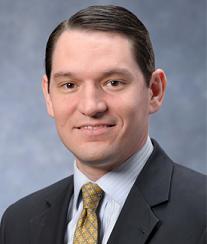 The Pittsburgh Business Times Fast Trackers Award honors leaders in Pittsburgh’s business and non-profit community who are under 40 years old. McGowan Institute for Regenerative Medicine faculty member Steven Little, PhD, is a 2015 awardee. Winners are selected for their successful efforts to grow a business or non-profit and have shown to have had significant impact on the growth, scope, or impact of their organization. Dr. Little and other honorees will be recognized at an event and in a special supplement in the Pittsburgh Business Times.
The Pittsburgh Business Times Fast Trackers Award honors leaders in Pittsburgh’s business and non-profit community who are under 40 years old. McGowan Institute for Regenerative Medicine faculty member Steven Little, PhD, is a 2015 awardee. Winners are selected for their successful efforts to grow a business or non-profit and have shown to have had significant impact on the growth, scope, or impact of their organization. Dr. Little and other honorees will be recognized at an event and in a special supplement in the Pittsburgh Business Times.
Dr. Little is the Chairman of the Department of Chemical & Petroleum Engineering at the University of Pittsburgh, and is the youngest department chair in the history of the Swanson School of Engineering. He has made impactful achievements to grow the Department (which are impressive in their own right), along with being a world-renowned scientist, an award winning educator, the creator of a high-tech startup here in Pittsburgh, and a Director of a non-governmental organization that builds schools and educational infrastructure in Sierra Leone, Africa. He has realized all of these achievements by the age of 37.
Dr. Little was selected to serve as the Chair of the Department at the University of Pittsburgh two and a half years ago. Since his selection, the department has increased the faculty by 30 percent; increased funding by 100 percent; increased faculty publications by 100 percent; increased national ranking to be in the top 25 public schools in the country—the first time in the history of the Department; established collaboration agreements with nationally recognized corporations; and increased student enrollment by almost 100 percent.
Dr. Little is widely recognized on the University of Pittsburgh campus as a superb teacher, and in 2013 was the recipient of the campus-wide Chancellor’s Distinguished Teaching Award and the Carnegie Science Center Award for University Educators.
Dr. Little is an innovator who has used his unique talents to create some radical yet very effective strategies for treating disease, leading to the creation of a Pittsburgh-based startup company, Qrono Inc.—the first custom-design controlled release service-company to market this new medical technology. Dr. Little’s focus is on “biomimetic” therapies that replicate biological functions and the interactions of living cells via synthetic systems. This “platform technology” utilizes biodegradable polymer matrices developed by Dr. Little to treat different conditions utilizing one core technology. A long list of media coverage reaffirms the scope and the impact that Dr. Little is having on medical science, and how he is changing the paradigms for treatment of disease.
Dr. Little’s platform technology is now being applied to new treatments for gum disease. Preclinical studies show that his controlled-release micro-capsules can reverse gum disease, the leading cause of tooth loss in adults, and is considered the most serious oral health problem of the 21st century and associated with serious complications such as heart disease and stroke. Gum disease impacts over 20 percent of the entire population of the U.S.—or 62 million people—and the potential treatment has a market size of $14.3 billion. This work was covered by the Nature journals, National Public Radio, and the National Institutes of Health’s website as a “Spotlight.”
Also, his medical platform technology can be applied to delivery of drugs to the eye. His team has built a “body temperature responsive” gel that can deliver drugs to the eye for over a month using one eye drop. The technology is currently being applied to glaucoma but will soon be extended to other ocular diseases. This work was recently highlighted in the Wall Street Journal.
Also recently the online magazine Pop City featured Dr. Little as one of Pittsburgh’s “disruptors”—a Pittsburgher shaking up the status quo—which precisely describes his leadership and his research on how pharmaceuticals can be designed to mimic biological processes and more effectively treat disorders like macular degeneration, tissue rejection, and gum disease. This “disruptive science” transforms the way we treat disease by designing medicine that can “hack” into the body’s natural communication pathways between cells, nerves, and tissues, thereby regenerating tissue and controlling the immune system. His accomplishments also resulted in him being selected as one of the recipients of Pittsburgh Magazine’s 40-Under-40 in 2014.
Finally, Dr. Little has been actively involved for years as a Director in a non-government organization called “EduNations,” which seeks to build educational infrastructure and build schools in Sierra Leone, Africa. The organization has built and operates 10 primary schools in Sierra Leone where each student receives a free education, a school uniform, and a hot meal to take home to their families.
Read more…
Pittsburgh Business Times: Fast Tracker: Steve Little, University of Pittsburgh
